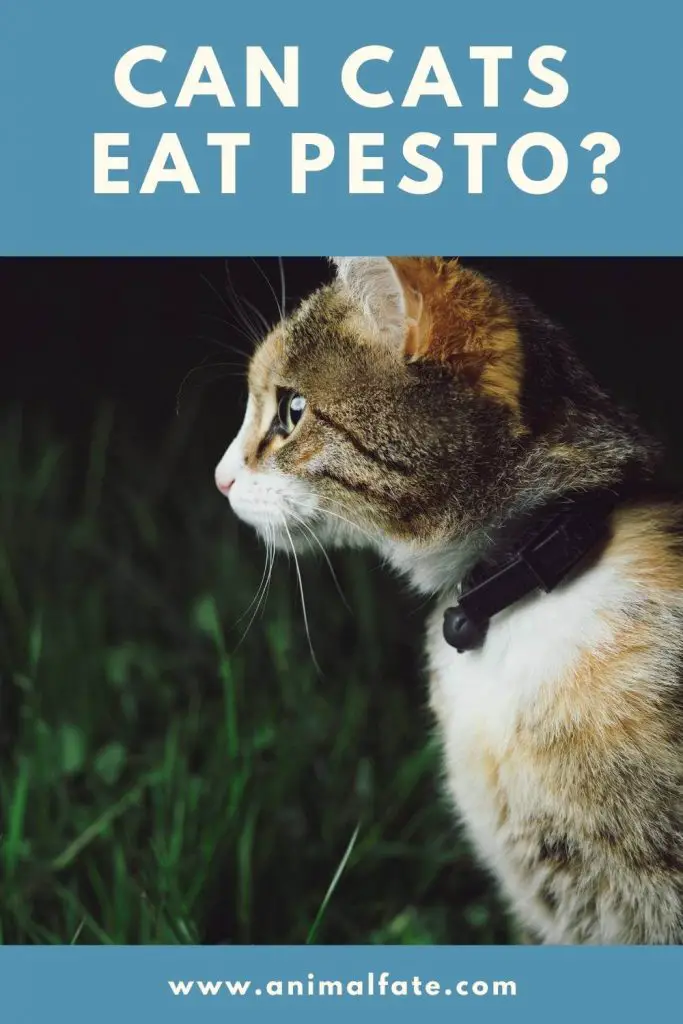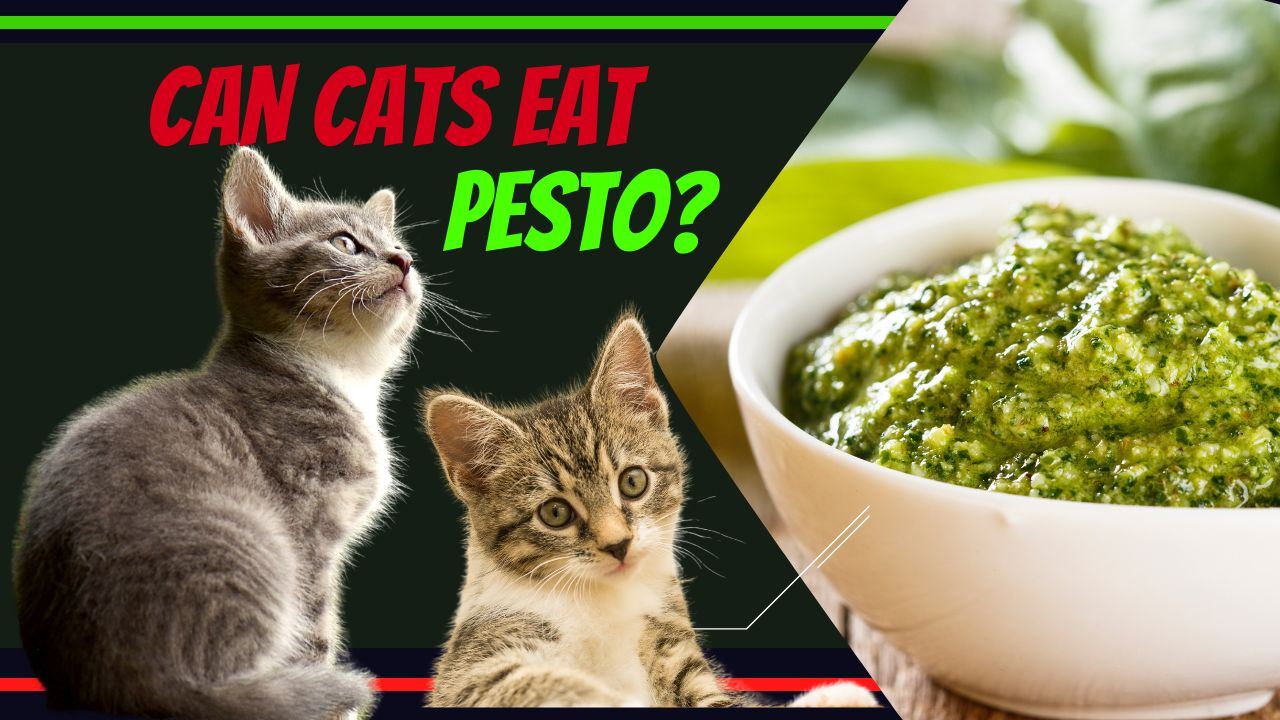Cats are curious creatures, and as pet owners, we often find ourselves wondering what foods are safe for them to consume. One such question that frequently arises is whether cats can eat pesto. In this article, we will delve into the world of feline nutrition and explore whether pesto is a suitable addition to their diet. So, let’s find out if our feline friends can indulge in this popular Italian sauce.

Understanding a Cat’s Dietary Needs
Before we can determine whether cats can eat pesto, it’s crucial to understand their dietary requirements. Cats are obligate carnivores, which means their bodies are designed to thrive on a diet primarily consisting of meat. Their digestive systems are not equipped to handle certain foods that humans can consume without issue.
The Ingredients of Pesto
Pesto is a flavorful sauce made from fresh basil leaves, pine nuts, garlic, Parmesan cheese, olive oil, and sometimes additional ingredients like lemon juice or sun-dried tomatoes. While these ingredients may be safe for humans, they may not necessarily be suitable for our feline companions.
Is Pesto Safe for Cats?
Unfortunately, pesto is not recommended for cats. Several ingredients commonly found in pesto can be harmful to felines. Let’s take a closer look at each of these ingredients and understand why they should be avoided.
1. Garlic and Onion
Both garlic and onion belong to the Allium family and contain compounds that can cause damage to a cat’s red blood cells. Ingesting even small amounts of garlic or onion can lead to a condition called hemolytic anemia, which can be life-threatening for cats.
2. Cheese
While cats can tolerate small amounts of dairy products, such as plain yogurt, cheese should be consumed in moderation. Some cats may be lactose intolerant, and excessive cheese consumption can lead to digestive issues like diarrhea or upset stomach.
3. Nuts
Pine nuts, a common ingredient in pesto, can pose a choking hazard for cats. Additionally, some nuts, like macadamia nuts, are toxic to cats and can cause symptoms such as weakness, vomiting, and tremors.
4. Basil and Other Herbs
While small amounts of fresh herbs like basil are generally safe for cats, it’s important to note that some herbs can cause gastrointestinal upset. Cats have sensitive digestive systems, and consuming large quantities of herbs may lead to vomiting or diarrhea.
Alternatives to Pesto for Cats
Although pesto is not suitable for cats, there are alternative treats and toppings that you can offer your feline friend. Here are a few safe options:
-
Cooked Meat: Cats thrive on a meat-based diet, so offering them small portions of cooked chicken, turkey, or fish can be a healthy and enjoyable treat.
-
Cat-Safe Herbs: Instead of pesto, you can grow cat-safe herbs like catnip or cat grass. These can provide a safe and natural way for your cat to explore different flavors.
-
Commercial Cat Treats: There are numerous cat treats available in the market that are specifically formulated to meet a cat’s nutritional needs. These treats come in various flavors and textures, ensuring your cat’s taste preferences are met.
Conclusion
In conclusion, cats should not consume pesto due to the potential harm certain ingredients can cause. Garlic, onion, cheese, nuts, and excessive herbs can all pose risks to a cat’s health. It’s essential to prioritize your cat’s well-being by providing them with a balanced and species-appropriate diet.
Remember, if you have any concerns about your cat’s diet or health, it’s always best to consult with a veterinarian. They can provide personalized advice based on your cat’s specific needs and help you make informed decisions regarding their nutrition.
FAQs
-
Can cats eat basil?
Cats can consume small amounts of fresh basil without any major issues. However, excessive consumption may lead to gastrointestinal upset. -
Is garlic toxic to cats?
Yes, garlic is toxic to cats. It contains compounds that can damage a cat’s red blood cells and lead to anemia. -
Can cats eat cheese?
Cats can tolerate small amounts of cheese, but it should be given in moderation. Some cats may be lactose intolerant, so it’s important to monitor their reaction. -
Are pine nuts safe for cats?
Pine nuts can pose a choking hazard for cats. It’s best to avoid giving them to your feline friend. -
What are some cat-safe treats?
Commercial cat treats that are specifically formulated for feline nutrition are a safe option. Additionally, small portions of cooked meat like chicken or fish can be offered as treats.

